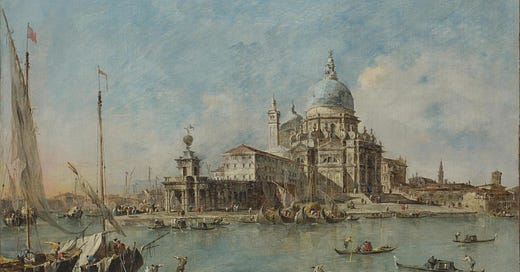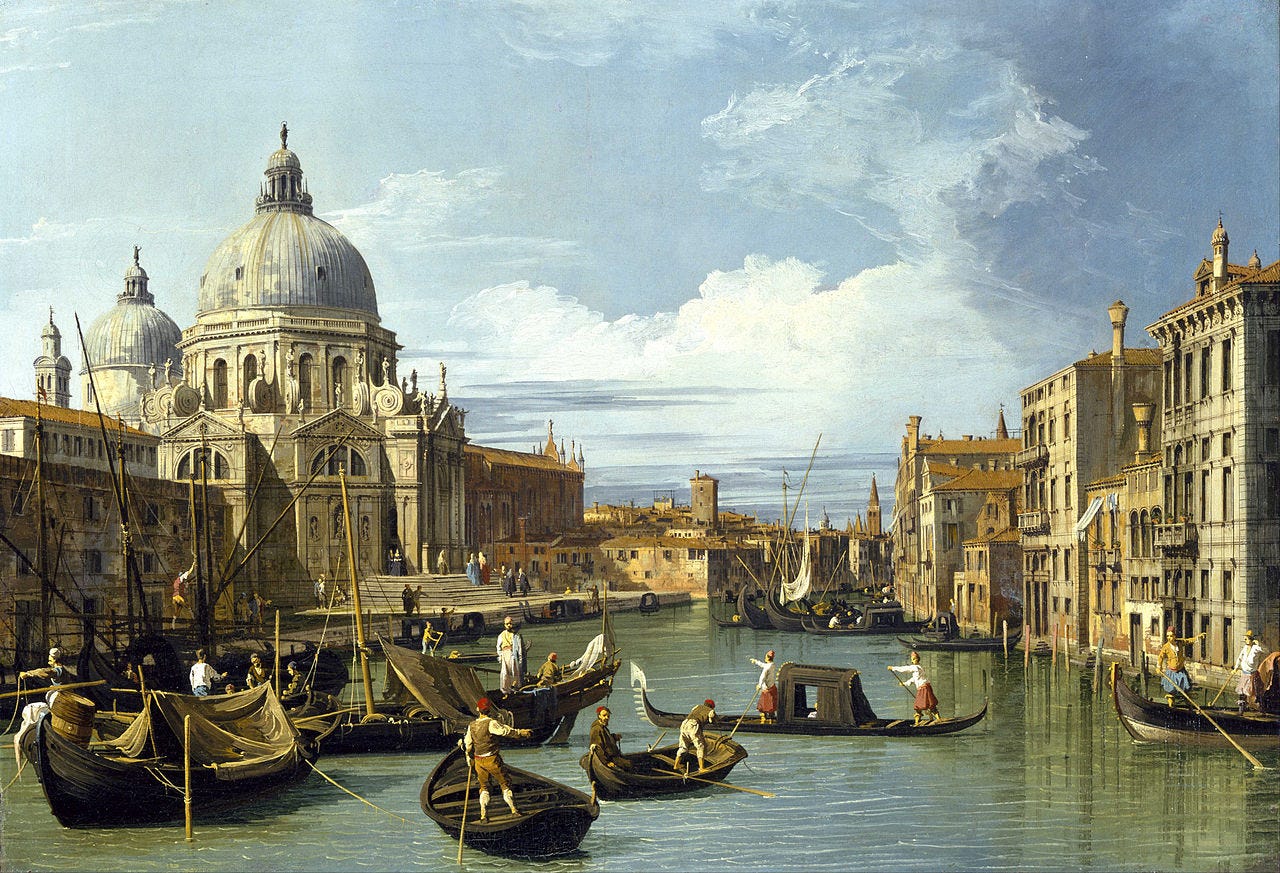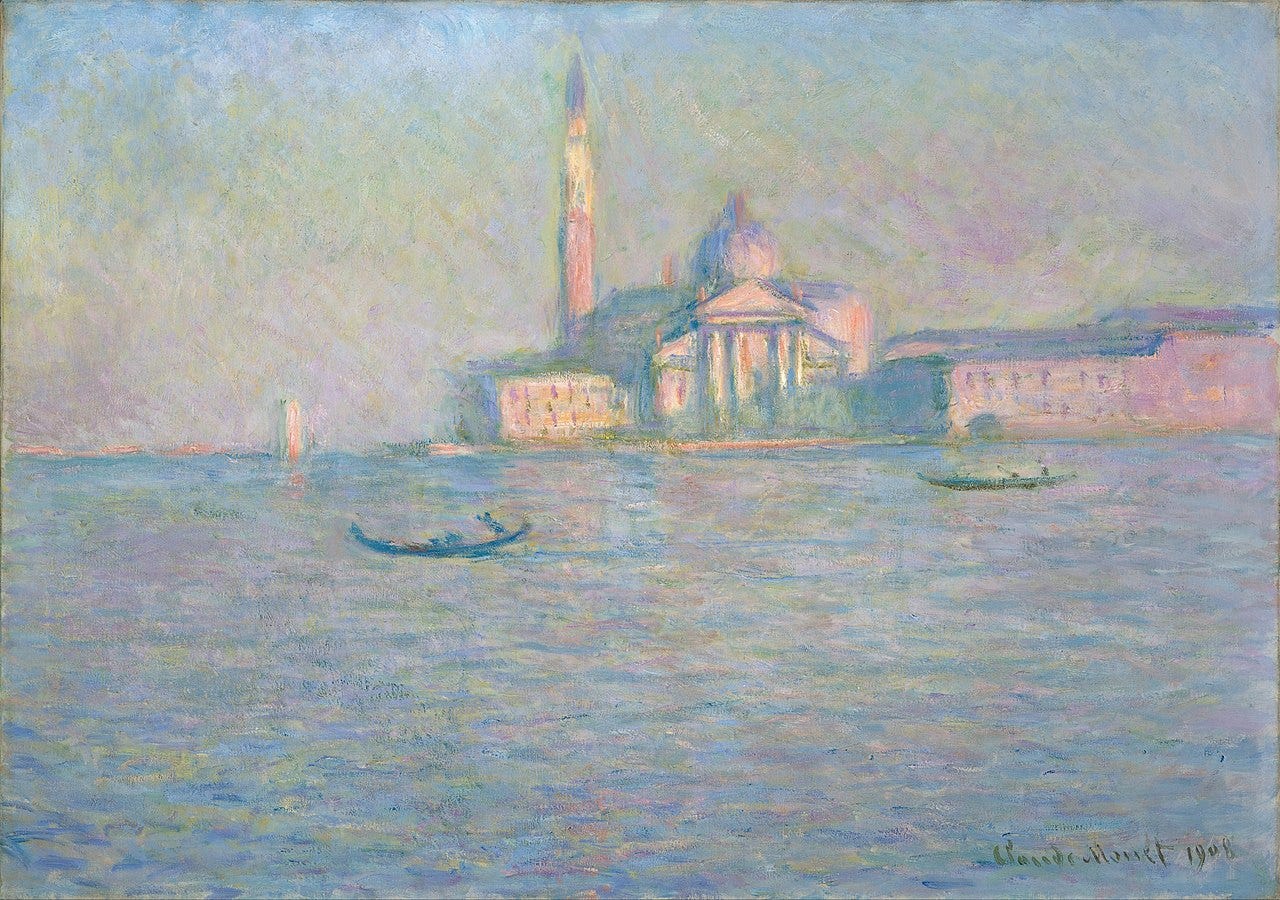Welcome to . This weekend I’ll be travelling to Venice for the first time. As such, the time felt right to make this addition to our World in Paint series. To say I’m excited is an understatement. For the full map of posts, see here.
I’ve long heard tell of a city, in a country already famed for the beauty and history of its cities, that is said to be more beautiful than any other. They say it’s an impossible city, a floating city, a city of water.
This city has had many names, but really one will do: Venice.
I stood in Venice, on the Bridge of Sighs, A palace and a prison on each hand: I saw from out the wave her structures rise As from the stroke of the enchanter’s wand: A thousand years their cloudy wings expand Around me, and a dying Glory smiles O’er the far times, when many a subject land Looked to the wingéd Lion’s marble piles, Where Venice sate in state, throned on her hundred isles! She looks a sea Cybele, fresh from ocean, Rising with her tiara of proud towers At airy distance, with majestic motion, A ruler of the waters and their powers: And such she was — her daughters had their dowers From spoils of nations, and the exhaustless East Poured in her lap all gems in sparkling showers: In purple was she robed, and of her feast Monarchs partook, and deemed their dignity increased. In Venice Tasso’s echoes are no more, And silent rows the songless gondolier; Her palaces are crumbling to the shore, And music meets not always now the ear: Those days are gone — but Beauty still is here; States fall, arts fade — but Nature doth not die, Nor yet forget how Venice once was dear, The pleasant place of all festivity, The revel of the earth, the masque of Italy!
1. Venice: The Punta della Dogana with S. Maria della Salute — Franceso Guardi (c. 1770s)
2. Lord Byron, “I Stood in Venice” from Childe Harold's Pilgrimage (1812)
“Whenever the jetty fountains splash into the marble basins, they seem to me to be telling the story of the floating city. Yes, the spouting water may tell of her, the waves of the sea may sing of her fame! On the surface of the ocean a mist often rests, and that is her widow’s veil. The bridegroom of the sea is dead, his palace and his city are his mausoleum! Dost thou know this city? She has never heard the rolling of wheels or the hoof-tread of horses in her streets, through which the fish swim, while the black gondola glides spectrally over the green water. I will show you the place,” continued the Moon, “the largest square in it, and you will fancy yourself transported into the city of a fairy tale.”
3. The Entrance to the Grand Canal, Venice — Canaletto (c. 1730)
4. Hans Christian Andersen, from What the Moon Saw (1866)
Memory’s images, once they are fixed in words, are erased,” Polo said. “Perhaps I am afraid of losing Venice all at once, if I speak of it, or perhaps, speaking of other cities, I have already lost it, little by little.”










